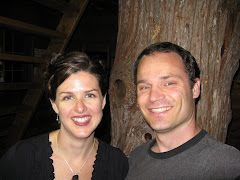That a baby bird is not a mammal should go without saying. Still, the tiny creature cradled in my older sister Alicia's arms gulped down the warm milk from the eye-dropper as if it were, in fact, a mammal, as if it would happily adapt itself to whatever sustenance we provided.
We found it flailing helplessly on the crackly hot sidewalk just past the Mooney house. Our parents had warned us of certain unnamable dangers lurking about that mustard-colored house, and our imaginations filled in the absence of tangible explanation like hot lava flowing into cracks. "They chop off your fingers and toes if you take one step on their grass," I guessed. "They hunt cats and trap them in the basement," Alicia retorted. "They suck out all the good juices in your body and replace it with evil poison," I said. "They grind up people and put them into pies," she shouted.
We weren't terribly young, naive or inexperienced. We knew the subject matter of real fear: Great-Grandfather "Papa" got sick, slowed to a shuffle and died; a giant mountain named after a Saint erupted seemingly without warning; classmate's houses caught fire. And each day with lived a peek-around-the-corner, tip-toe sort of life with our unpredictable mother, who might surprise us by cooking dinner or dismay us by staying in bed all day.
We knew the Mooneys weren't to blame for these things. Still, it felt good to volley crimes back and forth as we approached their house-- "They steal your clothes and make you run home naked!"-- then hold hands tightly and run past that ugly thing as fast as our skinny scabby bird-legs would carry us, savoring the delicious chill of concocted fear as it crept down our spines.
It had fallen from its nest, that poor little bird, and if we squinted our eyes against the sun and ignored the moving clouds, we could make out its former home in the branches high above us. We couldn't see the mother bird or hear any bird noises, not even from the baby on the ground. We debated what to do: climb up and put the baby bird back? "No, the mama bird will reject it once she smells human on it," my sister said sagely. So there was no choice but to scoop up that bird from the sidewalk and take it home and make it a new nest from an old shoebox that smelled like leather, shoe polish, and now grass since we added some clumps from our yard to make it homey.
As for food, I don't know whose idea it was to feed it warm milk from an eye-dropper. God knows we had food issues, with a mother half-starved by her own choosing. But her wrath was limited to herself; the rest of us may have been bony-legged but we were well-fed and well-loved, too. Perhaps the milk was our idea and nobody bothered to stop us. In any event, the bird gulped it down in big, thirsty swallows.
When we checked on it the next morning, the bird was still and rigid, nothing more than a stick with feathers. We weren't surprised, for as much as we loved the baby bird and wished it could stay, we knew deep down that we were only delaying the inevitable. In spite of experience, we were glass-half-full types of kids, and we knew that we'd done well to extend life, if only for a few hours.
We buried it near the perimeter of our back yard, shoe box and all, under a giant tree that was perfect for climbing. We retrieved one downy whispy feather from the box, poking it into the soft earth as a grave marker, knowing that the mother bird would recognize it if she ever came looking for her little bird. Perhaps we whispered a prayer; perhaps not. Either way, we most certainly held hands as we walked back toward our house to see about lunch.
Monday, April 06, 2009
Baby Bird
Subscribe to:
Posts (Atom)





